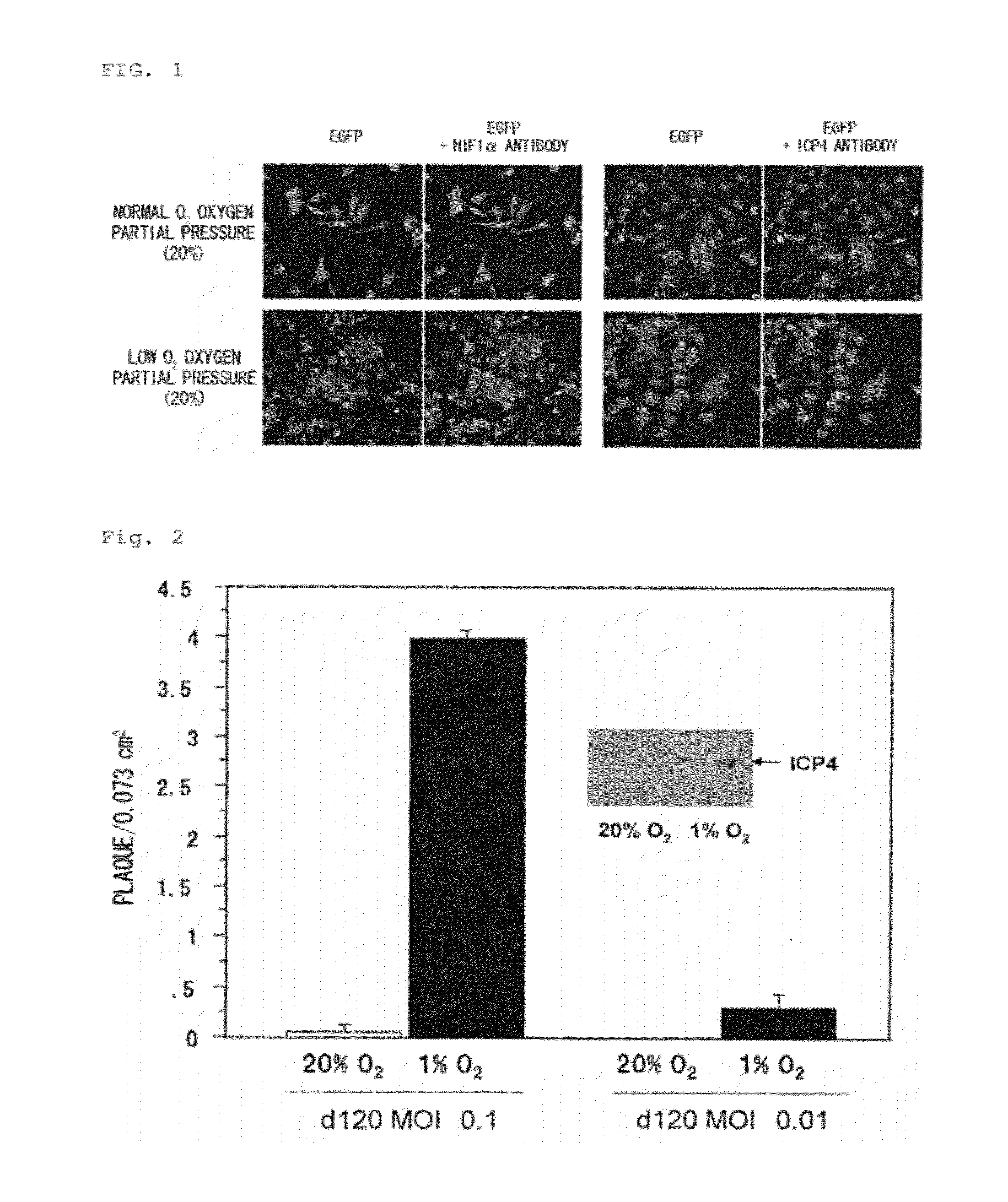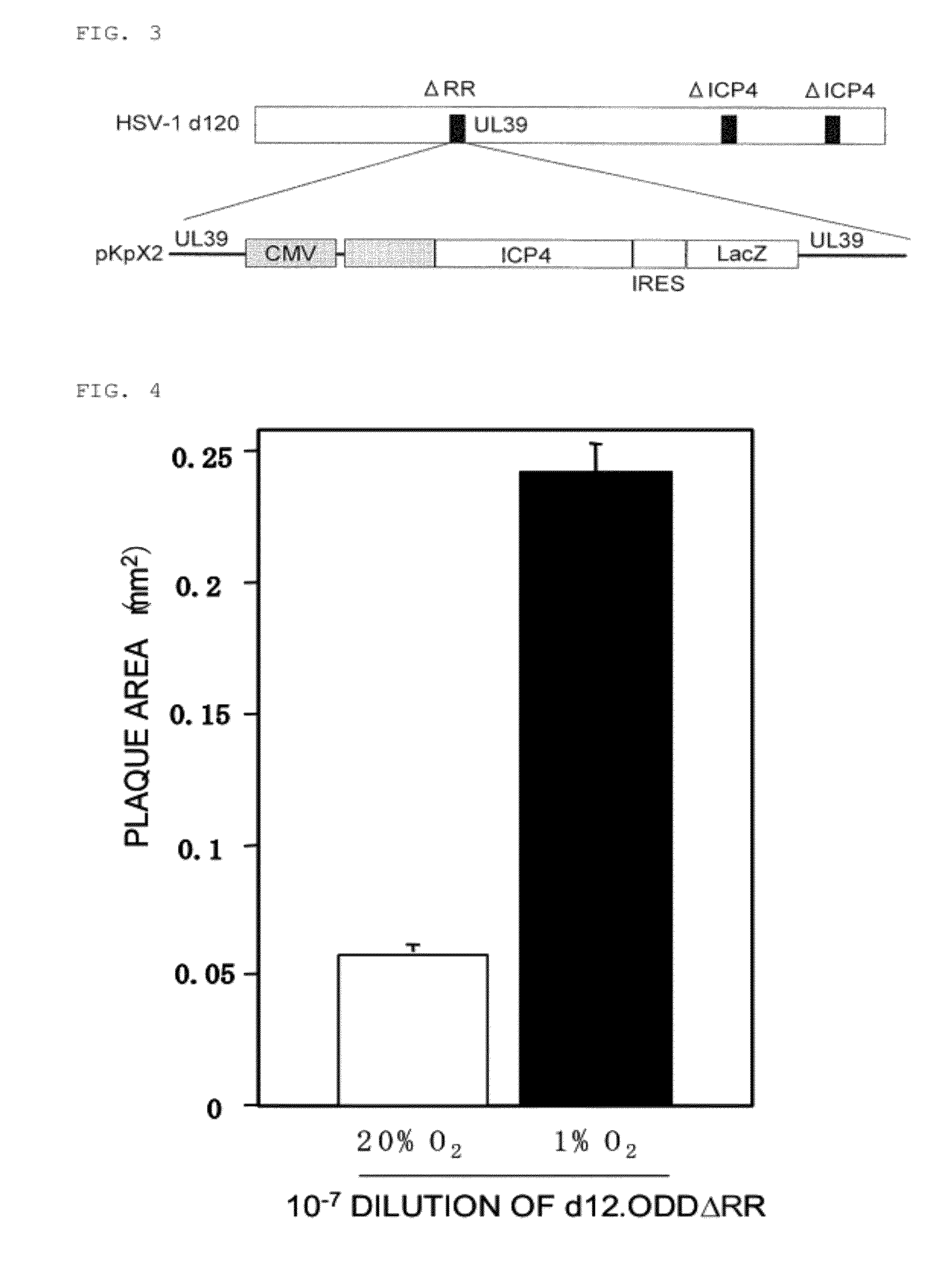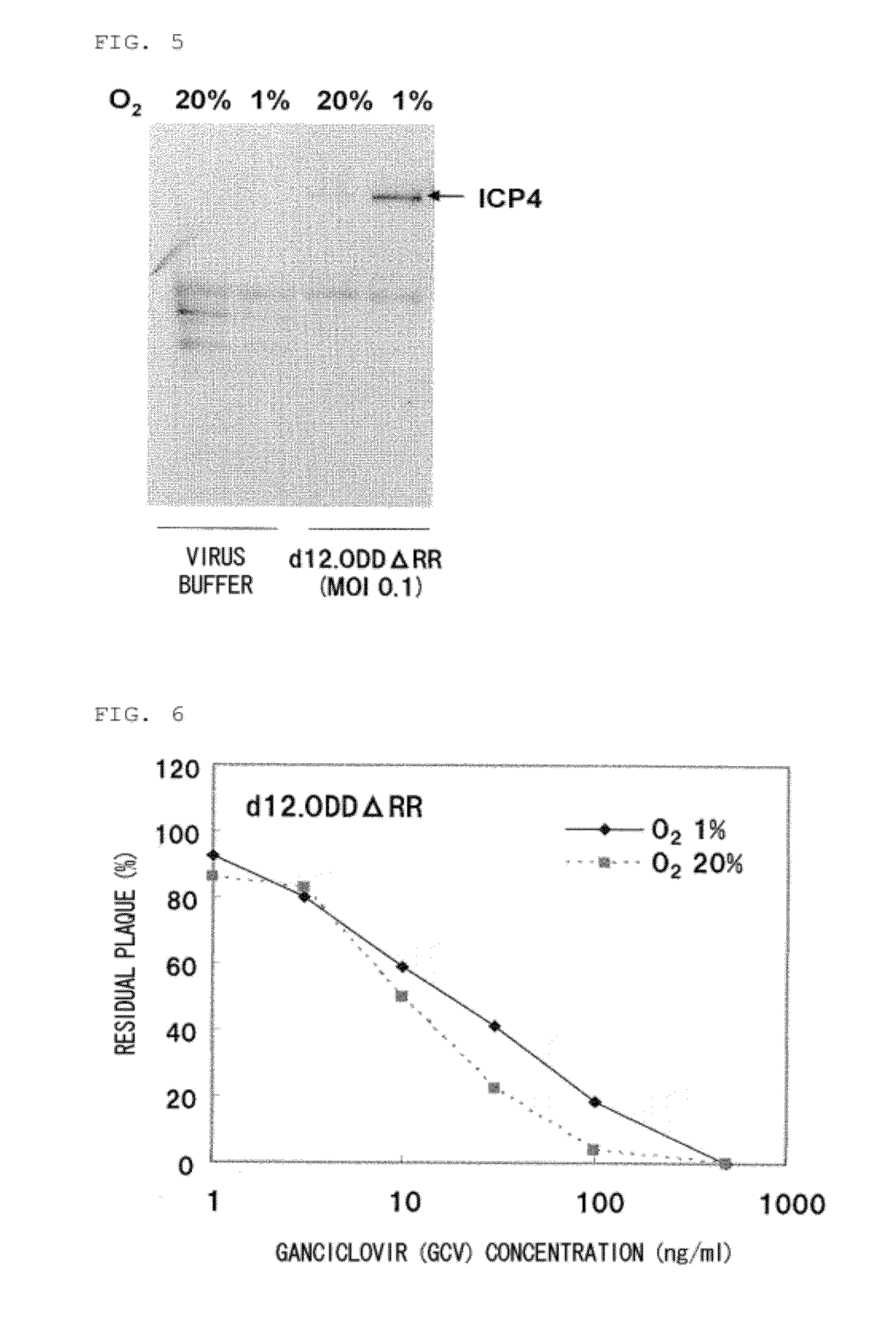Virus growing in hypoxic cell or virus vector expressing gene therein
a virus and hypoxic cell technology, applied in the field of viruses, can solve problems such as weak therapeutic effects, and achieve the effect of effective treatment or prevention of diseases
- Summary
- Abstract
- Description
- Claims
- Application Information
AI Technical Summary
Benefits of technology
Problems solved by technology
Method used
Image
Examples
example 1
Production of Virus
[0051]A polypeptide composed of 57 proteins containing the 564th proline residue, which is the ubiquitin-proteasome recognition site within the ODD (oxygen-dependent degradation domain) of HIF1α, which is an amino acid sequence serving as a marker of protein degradation at normal oxygen atmospheric pressure, was added to the amino terminal of ICP4, which is a transcription factor essentially required for the initiation of HSV-1 replication. Moreover, a nuclear localization signal composed of 23 amino acids was added to the amino terminal thereof.
[0052]ICP4 gene was PCR-amplified using a 4085-bp blunt end SalI-MseI fragment (provided by Dr. Hayward of John Hopkins School of Medicine) derived from pGH108 (J. Virol., 56, 558-570, 1985) containing the coding region thereof, from the initiation codon to a PvuII site, and a 261-bp DNA encoding a Kozak sequence (aattcccagcttgac), a sequence of 23 amino acids serving as a nuclear localization signal, and 57 ODD sequences,...
PUM
| Property | Measurement | Unit |
|---|---|---|
| partial pressure | aaaaa | aaaaa |
| oxygen partial pressure | aaaaa | aaaaa |
| pressure | aaaaa | aaaaa |
Abstract
Description
Claims
Application Information
 Login to View More
Login to View More - R&D
- Intellectual Property
- Life Sciences
- Materials
- Tech Scout
- Unparalleled Data Quality
- Higher Quality Content
- 60% Fewer Hallucinations
Browse by: Latest US Patents, China's latest patents, Technical Efficacy Thesaurus, Application Domain, Technology Topic, Popular Technical Reports.
© 2025 PatSnap. All rights reserved.Legal|Privacy policy|Modern Slavery Act Transparency Statement|Sitemap|About US| Contact US: help@patsnap.com



